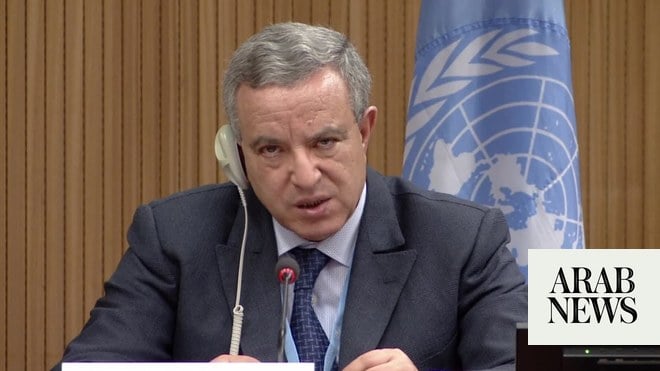
The Human Rights Council urged officials to ensure justice prevails for the many victims of human rights abuses and compensation is provided for their families
Members of a fact-finding mission to the country lamented the denial of access to the key city of Sebha in the south, and to prisons and detention centers across the country
NEW YORK CITY: The UN Human Rights Council on Monday called on Libyan authorities to step up their efforts to ensure justice for the large numbers of victims of long-standing human rights violations in the country, and provide compensation for them and their families.
These include cases of torture, arbitrary detention, extrajudicial killings, forced disappearances, human trafficking and internal displacement, along with families who have been denied access to mass graves and morgues containing the remains of relatives.
“Victims and their families are impatient for authorities to provide timely information on investigations and ensure the perpetrators are held accountable,” said Mohammad Auajjar, chairperson of the UN’s Independent Fact-Finding Mission on Libya, which was established by the HRC in June last year to investigate allegations of human rights abuses in the country since 2016.
He was speaking following a visit by his team to the North African country, where they heard testimonies from the relatives of victims. Many of them had traveled from the cities of Benghazi, Sirte, Murzuk, Sabha and Misrata to meet the representatives of the mission.
“The families of these victims have waited far too long for justice,” said Auajjar. “Libyan authorities owe it to them to share information about their loved ones, to meet them and give them answers. Silence is unacceptable.
“We, too, have asked repeatedly for answers to the status of multiple investigations concerning serious human rights violations but to date there has been no satisfactory response.”
Members of the mission were supposed to visit Sebha, the capital of the southern Fezzan region, to meet victims of human rights violations but they were denied access by local authorities. People traffickers have transported huge numbers of migrants from Niger, Chad and Sudan to Europe via Sebha.
The team’s experts also expressed regret that they were unable to meet the attorney general and ask about the testimonies of victims, which he has a mandate to investigate. In addition, Libyan authorities denied the team access to prisons and detention centers across the country.
Chaloka Beyani, an expert in international law, said: “Arbitrary detention in Libya has become pervasive as a tool of political repression and control, which explains why thousands of persons are deprived of their liberty, often in poor conditions, without due process or access to justice.”
Lawyer Tracy Robinson from Jamaica, who is a member of the fact-finding mission, said: “The state authorities we met told us of their efforts to strengthen the rule of law but these efforts have not produced justice for the victims and their families.”
The UN team also called for the immediate release of Iftikhar Boudra, who was detained in Benghazi four years ago after making critical comments on social media about militarization in eastern Libya. She is reportedly critically ill and has been denied visits from her family for months.








